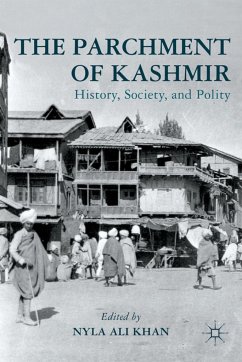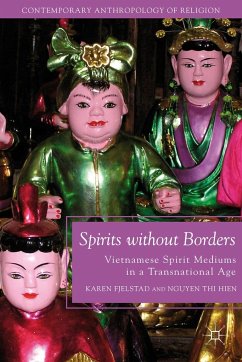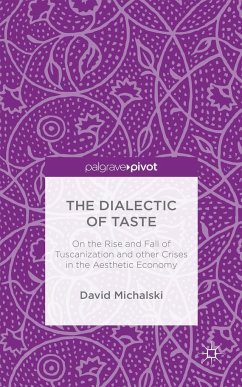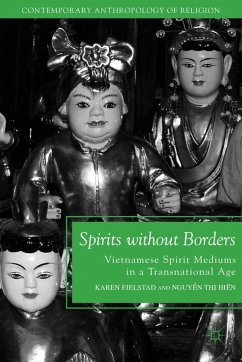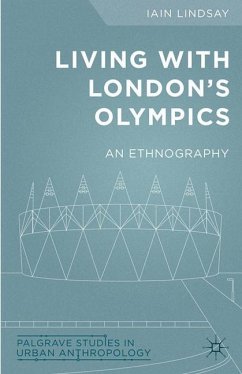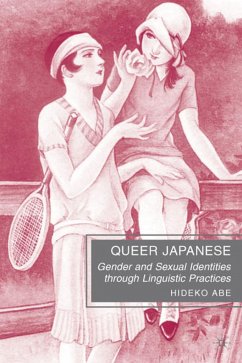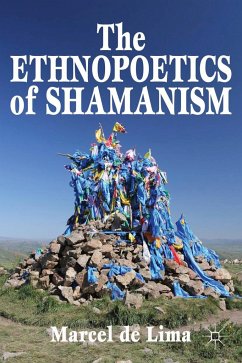
Nyla Ali Khan
Gebundenes Buch
The Parchment of Kashmir: History, Society, and Polity
Versandkostenfrei!
Nicht lieferbar





A cross-disciplinary anthology on contemporary Kashmir by academics from Jammu and Kashmir, the first such volume to appear. The book offers a panorama of key cultural concerns of Jammu and Kashmir today, incorporating analysis of military, cultural, religious, and social aspects of the society and polity.
NOOR AHMAD BABA Professor of Political Science and Dean of the Faculty of Social Sciences at Kashmir University REKHA CHOWDHARY Professor of Political Science at the University of Jammu BASHIR AHMAD DABLA Professor and former chair, Department of Sociology and Social Work, University of Kashmir, Srinagar RATTAN LAL HANGLOO Chair of the Department of History and Chief Proctor at the University of Hyderabad, Andhra Pradesh, India MOHAMMAD ISHAQ KHAN Former Professor, Head of the History Department, and Shaikhu'l-'Alam Chair at Kashmir University NYLA ALI KHAN Teaches at the University of Oklahoma NEERJA MATTOO Professor emeritus and former Principal and Head of the Department of English at the Government College for Women, Maulana Azad Road, Srinagar, Kashmir HAMEEDA NAEEM Associate Professor of English, University of Kashmir, Srinagar GULL MOHAMMAD WANI Senior Associate Professor of Political Science at the University of Kashmir, Srinagar M. H. ZAFFAR Professor of Philosophy and Director of the Institute of Kashmir Studies, University of Kashmir, Srinagar
Produktdetails
- Verlag: Palgrave Macmillan / Springer Palgrave Macmillan
- Artikelnr. des Verlages: 978-1-137-49829-8
- 1st ed. 2012
- Seitenzahl: 262
- Erscheinungstermin: 20. August 2012
- Englisch
- Abmessung: 235mm x 155mm
- ISBN-13: 9781137498298
- ISBN-10: 1137498293
- Artikelnr.: 44688610
Herstellerkennzeichnung
Libri GmbH
Europaallee 1
36244 Bad Hersfeld
gpsr@libri.de
'"In a recent tribute to her grandfather, Sheikh Mohammed Abdullah, the editor of this valuable collection of essays by academics from Kashmir and Jammu Universities (among others) recalls how, as a child of 10, she witnessed the visit Abdullah received on his deathbed from Indira Gandhi, who: 'tactfully expressed her concern for the stalwart leader against whom [Indira] and her father, Jawaharlal Nehru, had deployed every stratagem in the book and whose youth, idealism, passion and courage had been undermined by the unbridled power of the Indian state.' (Khan 2012, 2)
This cameo portrait of Nyla Ali Khan's dying grandfather clearly haunts this book, as a remembrance intended to encourage readers 'to construct a politics that would
This cameo portrait of Nyla Ali Khan's dying grandfather clearly haunts this book, as a remembrance intended to encourage readers 'to construct a politics that would
Mehr anzeigen
enable the rebuilding of our pluralistic polity and society' since 'we cannot afford to lose yet another generation!' (Khan 2012, 4). This collection is an attempt to concretize the foundation for such a rebuilding by securing memories and traditions that, Ali Khan insists, set Jammu and Kashmir apart from the two nations insisting on their assimilation.
The book displays the complexities of Kashmiri identity as an overlapping of the discourses of Kashmiriyat, Islam, Saivism and Su?sm: as, that is, a cultural syncretism from the very beginning that struggles today to resist any monolithic homogenization or arbitrary bifurcation that would serve simplistically and brutally as a ?nal solution. [ Khan] [ ] offers this fascinating chorus as an example of the pluralism and dynamism of Kashmiri society that years of militarization and consequent radicalization of the youth have not yet, she and her contributors argue, fully overcome." Journal of Postcolonial Writing"The collection, to its credit, attempts to bypass the simplistic and polarizing mainstream discourses that have hitherto dominated the conversation on Kashmir as an India-Pakistan problem. Instead, Ali Khan attempts to create a new conversation that is not state-centered, and is explicitly invested in theorizing and describing the regional as an autonomous, distinct and complex space that contains multiple and nuanced perspectives on life in Kashmir [. . .] For the non-specialist lay reader, this collection offers an invaluable view of the complexities of Kashmiri life, beyond the media headlines and sound-bytes of the contemporary moment. For the scholar of South Asia, it presents an opportunity to engage with local perspectives and analyses of what is often reductively described as 'the Kashmir problem.'" - South Asian Review, Vol. 34, No. 1, 2013"In the last few years there has been a contest to appropriate and own the idea of Kashmiriyat and turn it to partisan advantage. Several of the essayists in the present volume note this, and their pieces refine our understanding of the term and its use and misuse in current discourse. [. . .] The contributions [. . .] emerge very directly from debates among people who have lived together for centuries and who are trying to find a basis to continue to do so [. . .] Strong regional traditions that transcend narrow religious boundaries are of course common across South Asia, but an understanding of the specific historical context in Kashmir helps us to understand why Kashmiriyat, in its various guises, has had such a strong hold on the popular imagination." Pakistaaniat, Fall 2013"The Parchment of Kashmir is an impressively and suitably intricate representation of literate cultures in Kashmir. It is also the best available mosaic portrait of vibrant multilingual intellectualism and multicultural heritage in any region of Asia. It beautifully conveys the complexity of Kashmir's human composition at a crossroads of civilization and thus provides a supple foundation for subtle understandings of Kashmir's current political predicament." - David Ludden, professor of History, New York University"The
The book displays the complexities of Kashmiri identity as an overlapping of the discourses of Kashmiriyat, Islam, Saivism and Su?sm: as, that is, a cultural syncretism from the very beginning that struggles today to resist any monolithic homogenization or arbitrary bifurcation that would serve simplistically and brutally as a ?nal solution. [ Khan] [ ] offers this fascinating chorus as an example of the pluralism and dynamism of Kashmiri society that years of militarization and consequent radicalization of the youth have not yet, she and her contributors argue, fully overcome." Journal of Postcolonial Writing"The collection, to its credit, attempts to bypass the simplistic and polarizing mainstream discourses that have hitherto dominated the conversation on Kashmir as an India-Pakistan problem. Instead, Ali Khan attempts to create a new conversation that is not state-centered, and is explicitly invested in theorizing and describing the regional as an autonomous, distinct and complex space that contains multiple and nuanced perspectives on life in Kashmir [. . .] For the non-specialist lay reader, this collection offers an invaluable view of the complexities of Kashmiri life, beyond the media headlines and sound-bytes of the contemporary moment. For the scholar of South Asia, it presents an opportunity to engage with local perspectives and analyses of what is often reductively described as 'the Kashmir problem.'" - South Asian Review, Vol. 34, No. 1, 2013"In the last few years there has been a contest to appropriate and own the idea of Kashmiriyat and turn it to partisan advantage. Several of the essayists in the present volume note this, and their pieces refine our understanding of the term and its use and misuse in current discourse. [. . .] The contributions [. . .] emerge very directly from debates among people who have lived together for centuries and who are trying to find a basis to continue to do so [. . .] Strong regional traditions that transcend narrow religious boundaries are of course common across South Asia, but an understanding of the specific historical context in Kashmir helps us to understand why Kashmiriyat, in its various guises, has had such a strong hold on the popular imagination." Pakistaaniat, Fall 2013"The Parchment of Kashmir is an impressively and suitably intricate representation of literate cultures in Kashmir. It is also the best available mosaic portrait of vibrant multilingual intellectualism and multicultural heritage in any region of Asia. It beautifully conveys the complexity of Kashmir's human composition at a crossroads of civilization and thus provides a supple foundation for subtle understandings of Kashmir's current political predicament." - David Ludden, professor of History, New York University"The
Schließen
Für dieses Produkt wurde noch keine Bewertung abgegeben. Wir würden uns sehr freuen, wenn du die erste Bewertung schreibst!
Eine Bewertung schreiben
Eine Bewertung schreiben
Andere Kunden interessierten sich für



